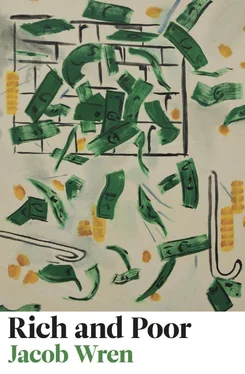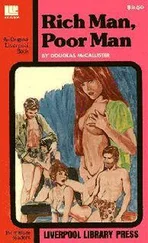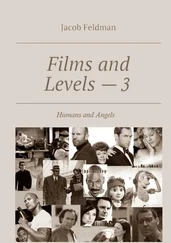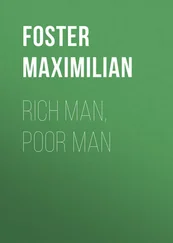As soon as I’m out of the building, a few blocks away, I violently rifle through the pages to find the mention. It takes me a while, its just a couple sentences quite close to the end, not nearly as negative as I first suspected, though I can see why they were offended. I have a dishwashing shift in an hour and consider calling in sick. I do feel sick, not sure I’m up for much of anything, but think better of it. I must continue to give an impression of steady normality in all aspects of my life. Irregular behaviour is suspicious. I must get through each day without attracting attention, the perfect picture of normality.
An hour is enough time to walk to the restaurant, and I slowly make my way there, calming myself as I go. As I walk, the irony of what just occurred grows steadily in my mind. Also the strange logic of it, of my own naïveté. It makes sense that the man I want to kill has also pissed off some of his colleagues, some of the people he has worked with over the years. If he angered me back when I had barely heard of him, it makes perfect sense that he has angered others as well. In this sense, bringing the book to the interview was the most stupid thing I could have done. It’s as if I was so sure I was unique, special, the only one who hated him, and when you are certain, you are always wrong. I should have assumed that whatever I felt, many others felt as well, not taken unnecessary risks.
Suddenly a detail from the interview, one I barely noticed at the time, comes into focus. The first moment they spotted the book at my feet, one of the interviewers, the woman, her first impulse was sarcasm. I’m trying to remember her words more exactly, something like: ‘I see you’re reading our majesty’s treatise,’ absolute sarcasm, disdain in her voice. And then I went on to say I liked it and admired him, as I had planned to say before I arrived. There was a moment when I could have saved myself, picked up on their attitude and followed it, matched my tone to theirs, but I was too slow, was somewhere else, not alongside the situation but falling back on my incorrect, preconceived ideas. I must learn from this, every mistake is a lesson. I must not follow some previously memorized score, but read each new moment for what it is, pick up on the signals that will allow me to open things up to my best advantage. There is not just one road towards my eventual goal; there are hypothetically many, but I must not let any more opportunities slip away.
By the time I reach the restaurant I am once again calm, on time for my shift, and the endless, repetitive washing of dishes calms me further. Others in the kitchen might feel I don’t wash the dishes quickly enough, but I am steady, unwavering. Everyone can see that the work gets done.
1.
My mother also didn’t care much for being poor, and one of the great pleasures of my ongoing success, in the years before she died, was to considerably improve her financial situation, give her a taste of the life she always dreamt of but that previously remained beyond her grasp. I remember, as a child, listening to her complain. It is only recently I’ve realized the degree to which her small daily comments might have influenced my worldview. Sometimes, as an exercise to make the boredom pass more quickly, I would place her complaints into four basic categories: 1) Her friends from school now had more than us. 2) We had enough to eat, but never enough to eat well. 3) Life was for enjoying, but how could we enjoy with so little. 4) She works and works, but nothing ever improves. She had hundreds of new ways to make these basic points, plus occasionally a few others, often in a manner that had us doubled over with laughter, and I would marvel at the variation, wondering which of my rather simplistic categories best suited each new complaint. My father would more or less ignore this daily roll call of life’s shortcomings, saying we had each other and what more did we need, stepping aside (since so much of her disappointment was directed towards him), but I took every word to heart.
My mother lived fifteen years longer than my father. I have always believed women were better than men: tougher, wiser, more strategic. Statistically, when a man’s wife dies, the man drops only a few years later, while women are far more likely to outlive their men by a substantial margin. This is only one sign, out of hundreds, of women’s greater inner strength. After her husband died, my mother genuinely came into her own. It was a beautiful thing to witness, how she finally came out into the world. This coincided with a moment at which money stopped being a problem for us, and she could spend it with the best of them. Strangely, on average, I don’t spend so much. I like good meals, the convenience of limousines and planes, but have relatively few expensive possessions. Of course, a frugal month for me might be a lifetime’s wage for a member of some particularly impoverished nation. But such imbalances are a natural, one might even say glorious, part of modern living. When I think of money and how so much has come my way, how aspects that were once impossible have since become habit, and the relief with which my mother encountered this newfound ease, my next thought is always about how hard I have worked. Because, I believe, I work harder than anyone I have ever met. Of course, most of us, the assholes, believe such things. It is the mantra for my class. But, in my particular case, it is also true.
My mother didn’t have to work for the windfall she received, but she did raise me, which I assure you was plenty work enough. We were never close, especially as I got older, but from the moment I could bridge the chasm between us with money, everything became easier. A conversation with my mother generally involved her speaking a great deal and me remembering to turn off my phone for a few hours while she went on. But with family you have no choice, you are bound to them for life. Perhaps it was because I found the conversations so tedious that I never got tired of buying her things, of the pleasure each new item so obviously generated. If it is true that purchases have never been such a great pleasure for me, that I prefer to earn, the least I could do was to enjoy the activity vicariously through her.
The other reason we weren’t closer is that I was always too busy working. Now that she is gone, I of course regret this. Even if it was often endlessly boring, it still would have been better to have had more time. But work was, and remains, the absolute priority. An average day for me begins at five a.m. with one-on-one reports from a few top executives regarding developments within their division. I try to keep these meetings light and friendly, to create a sense of warmth, a feeling that if they have problems in the future they can always come to me. The early morning start reflects the fact that, personally, I am at my best when I first wake up, an hour at which many of our employees are still groggy. I also believe this gives me an edge.
There is an espresso machine in my office, and for these early morning one-on-ones I generally prepare the coffee myself, instead of having a secretary do so, which is most often the case later in the day. I feel this act of making and serving coffee for an employee, as a psychological gesture, is essential and even fascinating. It’s a kind of display: that I am doing something helpful, that I am there for them. There is no milk, cream or sugar to be found anywhere in my office. When you drink coffee with me you must take it black, and I make each portion strong and thick. This also gives me an advantage, since I am accustomed to the harsh caffeine shock, the bitterness, while many of our executives are not.
At times I also schedule these meetings to overlap, paying careful attention to the moment when the next appointment arrives and realizes that the previous one is still underway. Endlessly intriguing how both employees deal with the situation and with each other. After briefly apologizing for the overlap, I’m already at the espresso machine, pulling another shot, observing how it all plays out from the corner of my eye. Often the previous appointment offers to leave and the game is up, but just as often they attempt to negotiate the space of the meeting, taking turns with their presentations or even awkwardly weaving them together. During these moments so much pure competition is present in the room, an absolute charge, sublimated into pretend co-operation or sparking up briefly as conflict. In general, my philosophy is that there can be no business without co-operation, but people must never get too comfortable. Co-operation must never rule the day.
Читать дальше












